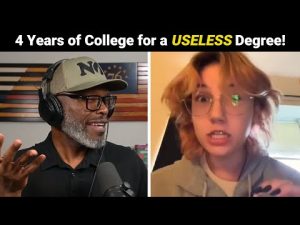In recent discussions, a troubling trend has emerged regarding the phenomenon known as “de-banking.” This practice involves individuals or companies being systematically ostracized from the banking system, often due to their political beliefs. Recently, this issue was highlighted by Mark Andreon during a podcast with Joe Rogan. He used the example of Kanye West to demonstrate how personal or corporate accounts might be frozen or closed simply for holding unpopular opinions. This raises critical questions about the state of free speech and the principles underpinning our financial institutions.
De-banking is not just a theoretical concern; it has real-world implications. Take, for example, the case of Ben’s father, who was denied access to banking services due to his political stance. If a person can be tangentially punished for expressing support for conservative values, what does this mean for the rest of society? Individuals like David Horowitz, a prominent right-wing advocate, have found themselves similarly targeted. His vocal opposition to issues such as Islamic extremism and unchecked immigration led to his banking privileges being revoked. This blatant politicization of banking is alarming and poses significant questions about equality under the law.
The mechanics of de-banking raise eyebrows about legality and fundamental rights. How can it be permissible for financial institutions to wield such power over individuals? This reality suggests that the banking system is being used as a tool of coercion rather than a service to facilitate commerce and personal finance. When banks can decide who gets to participate in the financial system based not on financial behavior but on political ideology, the integrity of the entire banking industry comes into question.
Beyond the legal ramifications, there’s a broader societal concern regarding the stifling of free expression. If individuals fear losing their financial resources for sharing their opinions, the chilling effect on open discourse can be monumental. Imagine a world where people are hesitant to speak their minds not only in public forums but even in small discussions due to potential repercussions. The fabric of democracy is compromised when people are forced into silence, ultimately leading to a more polarized environment where only certain viewpoints are allowed to flourish.
In conclusion, the trend of de-banking is a concerning development that demands attention. It challenges foundational principles such as free speech and fair treatment and raises critical questions about the authority of financial institutions in regulating personal expression. It is essential for conservative voices to unite in advocating for a system where banking remains neutral, allowing all individuals, regardless of their political beliefs, to engage freely in commerce. After all, in a society that champions liberty, the ability to express oneself—without fear of financial repercussions—should be a right cherished beyond measure.







